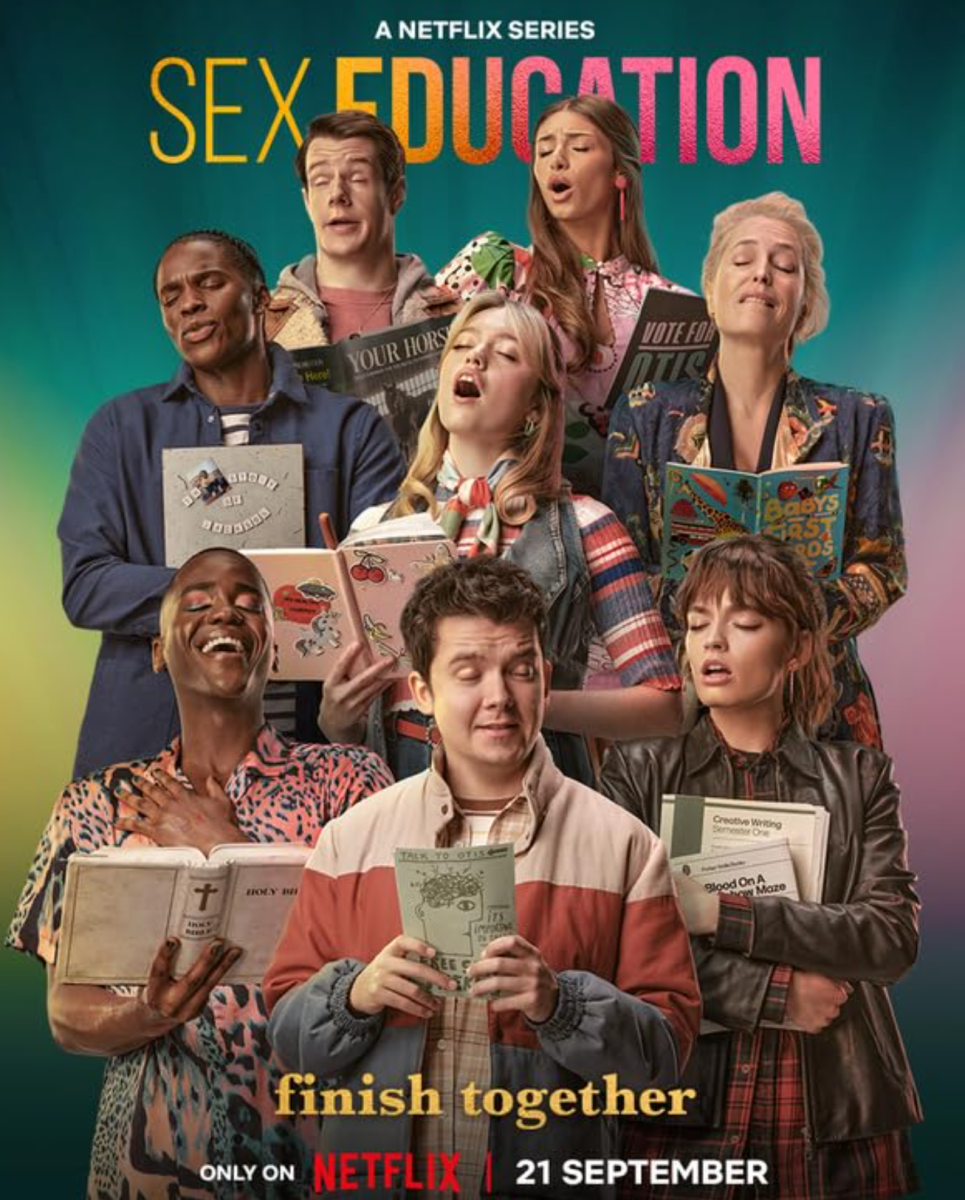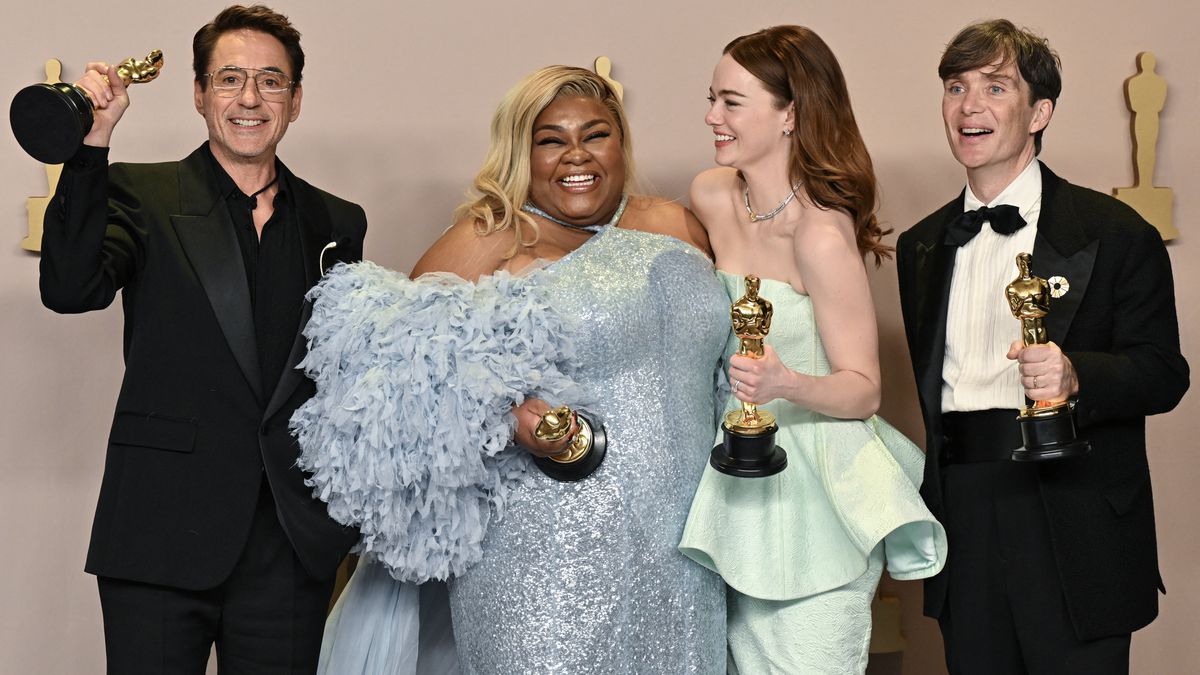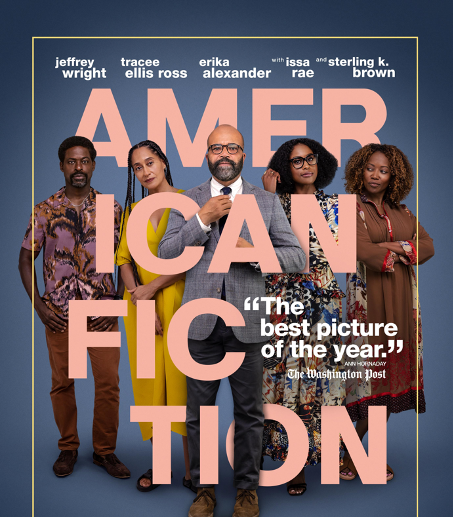Sex Education’s fourth and final season was released on Sept. 21 on Netflix. The series, starring Asa Butterfield, Emma Mackey and Ncuti Gatwa, follows the students of the fictional town of Moordale as they navigate high school and the complex relationships they begin to form.
The show has been praised for its inclusivity and representation not only of the LGBTQ+ community, but also people of color and the disabled community. The show handles representation with respect and dignity, giving equal amounts of importance to storylines focused on underrepresented people.
The inclusivity the show strives to achieve feels real. The show is not diverse just to fill a quota, instead because humanity itself is diverse. The characters in the show, although fictional, feel like real people with real stories and real struggles. Each storyline is elevated by high quality writing, emphasizing who these characters are, not just the boxes they check off.
One of my favorite characters in the show, Eric, played by Gatwa, comes from a Christian Nigerian family. He is also gay, and his journey to accept himself is one of the most profoundly beautiful storylines in the entire show. His sexuality often comes into conflict with his church, yet viewers follow him down a path which ends with him embracing his queerness and his Christianity, making it his goal to become a Pastor who welcomes queer people into his church.
The show’s fourth season marked a significant departure in the series as it came with the departure of several of the show’s main cast members. With each season of the show, more characters and new storylines were being introduced. The addition of characters led to the decision to trim down the cast for the final season in an effort to simplify the story. Characters whose arcs had mostly been completed were left out of the finale.
In order to create a seamless transition between seasons three and four, the show’s setting changed from Moordale Secondary to Cavendish College. The season three finale saw Moordale Secondary being shut down after the students at the school held a protest against the new headmaster’s sexist, homophobic and transphobic school policies. This created an opportunity for the writers to bring back the main cast enrolled at their new school Cavendish College, whilst the characters who were not featured in the final season went to different schools.
Cavendish College is a fresh juxtaposition to Moordale Secondary, a school that by the end of the third season had become an unwelcoming environment for its students. The college is a student-led, accepting campus for all.
With a new school inevitably comes new students. Season four sees the introduction of the Coven, Cavendish’s equivalent to Moordale’s Untouchables. Each group consists of the most popular kids in the school. The Coven consists of new characters Abbi, Roman and Aisha, all queer students focused on positivity and acceptance. Abbi and Roman are both trans and in a relationship with each other. The pair feature in the show’s first trans sex scene, a scene which is treated with the same level of intimacy and respect that is given to any straight or cis sex scene.
A prominent storyline throughout the final season is Aisha and Isaac working to make Cavendish more accessible for disabled students. Aisha is deaf, whilst Isaac uses a wheelchair. They come together, along with other students, to protest the school’s refusal to fix the elevator that consistently breaks down.
Aisha and Isaac’s disabilities are never the sole focus of their characters. Yes, they are disabled, but that is only one aspect of who they are. Isaac is a prominent portraitist who sells his art at the school’s auction. Aisha is an activist who strives to bring equality and acceptance to the community around her.
The show’s view on diversity never shies away from sensitive subject matters that come with certain aspects of each character’s identity. Queer characters experience homophobia and transphobia. Disabled characters have to deal with ableism. Students of color contend with racism. It is a necessary aspect of their stories that leads to an even more satisfying conclusion when the characters inevitably come out on top and become their most authentic selves.
Sex Education delivers heartfelt stories of beautifully imagined characters. Even some secondary characters are awarded a spotlight to show off what makes them unique. Every character feels like they were created with the same level of passion and sensitivity, which should serve as a blueprint for how to correctly handle representation in TV.
Gustavo Atencio Flores can be reached at [email protected]




















